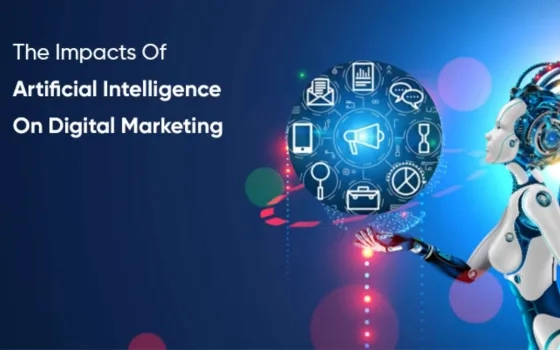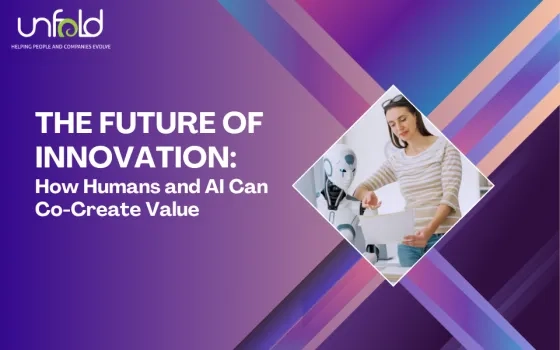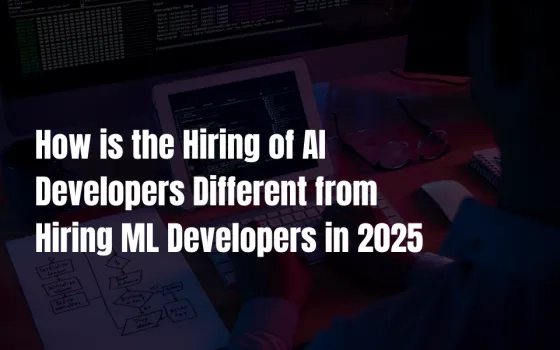In the rapidly evolving world of digital marketing, artificial intelligence (ai) has emerged as a game-changer. By leveraging ai technologies, businesses can now gain deeper insights into customer behavior, deliver personalized experiences, and optimize their marketing strategies with unprecedented efficiency. This blog will delve into the profound impact of ai on digital marketing, exploring its benefits, key applications, and future trends.
Understanding AI in Digital Marketing
Artificial intelligence (ai) has become a cornerstone of digital marketing, transforming how businesses interact with customers, optimize campaigns, and drive growth. Ai’s ability to analyze vast amounts of data, predict trends, and automate tasks has opened up new possibilities for marketers. This blog delves into the role of ai in digital marketing, exploring its applications, benefits, and the future of ai-driven strategies.
Artificial intelligence refers to the simulation of human intelligence processes by machines, particularly computer systems. These processes include learning (acquiring information and rules for using it), reasoning (using rules to reach approximate or definite conclusions), and self-correction. In the context of digital marketing, ai can analyze vast amounts of data, recognize patterns, and make decisions based on those patterns, often in real-time.
Ai’s ability to process and analyze large datasets far exceeds human capabilities. This allows marketers to gain deeper insights into consumer behavior, predict trends, and automate various tasks. The result is more personalized marketing strategies, improved customer experiences, and higher conversion rates.
Key Applications of AI in Digital Marketing
Artificial intelligence (ai) has revolutionized various industries, and digital marketing is no exception. With its ability to analyze data, predict trends, and automate processes, ai has become a critical tool for marketers seeking to enhance their strategies and deliver more personalized experiences to their customers. In this blog, we will explore the key applications of ai in digital marketing and how businesses can leverage these technologies to stay ahead in a competitive landscape.
1. Data Analysis and Customer Insights
Ai tools can process vast amounts of data from various sources, such as social media, website interactions, and purchase history. This data analysis helps marketers understand customer preferences, behavior, and trends, allowing for more informed decision-making.
Benefits of ai in data analysis:
- Speed and Efficiency: Ai can analyze data much faster than humans, providing real-time insights.
- Accuracy: Ai minimizes human error, leading to more accurate data interpretation.
- Predictive Analytics: Ai can predict future trends and customer behavior, helping marketers stay ahead of the curve.
2. Personalized Marketing
Personalization is key to modern digital marketing, and ai enables marketers to deliver highly personalized experiences to their customers. By analyzing user data, ai can tailor content, product recommendations, and marketing messages to individual preferences and behaviors.
Examples of ai-powered personalization:
- Email Marketing: Ai can customize email content based on user behavior, preferences, and purchase history.
- Product Recommendations: E-commerce platforms use ai to suggest products that users are likely to buy based on their past behavior.
- Content Personalization: Websites can dynamically change content to suit individual user preferences, enhancing user engagement.
3. Chatbots and Customer Service
Ai-powered chatbots have become a staple in digital marketing, providing instant customer support and improving user experience. Chatbots can handle multiple customer queries simultaneously, offer personalized responses, and operate 24/7.
Advantages of ai chatbots:
- Immediate response: Chatbots provide instant answers to customer inquiries, reducing wait times.
- Cost-effective: Automating customer service with chatbots reduces the need for human agents, lowering operational costs.
- Consistency: Chatbots deliver consistent service quality, ensuring that customers receive accurate and reliable information.
4. Content Creation
Ai is also making strides in content creation, assisting marketers in generating high-quality content quickly and efficiently. Tools powered by ai can write articles, create social media posts, and even produce video content.
Ai in content creation:
- Automated writing: ai tools like gpt-3 can generate blog posts, product descriptions, and other written content.
- Visual content: ai can create visual content, including graphics and videos, tailored to specific marketing needs.
- Content optimization: ai analyzes existing content and suggests improvements to enhance seo and engagement.
5. Programmatic Advertising
Programmatic advertising uses ai to automate the buying and selling of online ad space. this allows for real-time bidding and placement of ads, ensuring that they reach the right audience at the right time.
benefits of programmatic advertising:
- efficiency: automates the ad buying process, saving time and resources.
- targeting: uses ai to target ads based on user data, increasing relevance and effectiveness.
- real-time optimization: continuously monitors and adjusts ad campaigns for optimal performance.
6. Social Media Marketing
ai is revolutionizing social media marketing by providing insights into user behavior, optimizing ad placements, and enhancing content strategies. ai tools can analyze social media interactions, track trends, and identify influencers, helping businesses refine their social media strategies.
ai in social media marketing:
- sentiment analysis: ai can analyze user sentiments on social media, helping brands understand public perception.
- influencer identification: ai tools can identify key influencers who align with the brand’s values and target audience.
- ad optimization: ai optimizes social media ad campaigns by analyzing performance data and making real-time adjustments.
7. Predictive Analytics
predictive analytics uses ai to analyze current and historical data to predict future outcomes. in digital marketing, predictive analytics can forecast customer behavior, sales trends, and campaign performance.
applications of predictive analytics:
- customer retention: predict which customers are likely to churn and implement retention strategies.
- sales forecasting: estimate future sales and adjust marketing strategies accordingly.
- campaign optimization: predict the success of marketing campaigns and optimize them for better results.
8. Voice Search Optimization
with the rise of voice-activated devices, optimizing for voice search has become essential. ai plays a crucial role in understanding and processing voice queries, enabling marketers to optimize their content for voice search.
voice search optimization strategies:
- natural language processing (nlp): use ai to understand and respond to natural language queries.
- conversational keywords: optimize content with conversational keywords that mimic how people speak.
- local seo: enhance local seo efforts, as many voice searches are location-specific.

Benefits of AI in Digital Marketing
artificial intelligence (ai) has revolutionized various industries, and digital marketing is no exception. by leveraging ai, businesses can enhance their marketing strategies, improve customer experiences, and achieve better results. in this blog, we will explore the numerous benefits of ai in digital marketing and how businesses can harness these advantages to stay ahead in a competitive landscape.
Enhanced Personalization
ai allows marketers to deliver highly personalized experiences by analyzing user data and behavior. personalized marketing increases customer engagement, satisfaction, and loyalty, leading to higher conversion rates and sales.
Improved Customer Insights
ai tools can process and analyze vast amounts of data, providing marketers with deeper insights into customer preferences, behaviors, and trends. this enables businesses to make data-driven decisions and tailor their marketing strategies accordingly.
Increased Efficiency
ai automates various marketing tasks, such as data analysis, content creation, and customer service, freeing up time for marketers to focus on strategy and creativity. this increased efficiency leads to cost savings and improved productivity.
Real-Time Optimization
ai can monitor and optimize marketing campaigns in real-time, ensuring that they perform at their best. this real-time optimization allows marketers to make quick adjustments and maximize their return on investment (roi).
Better Targeting
ai enables more precise targeting by analyzing user data and identifying the most relevant audience segments. this improved targeting leads to more effective marketing campaigns and higher conversion rates.
Future Trends in AI and Digital Marketing
as technology continues to evolve at a rapid pace, artificial intelligence (ai) is set to play an increasingly significant role in the world of digital marketing. ai’s ability to process vast amounts of data, learn from it, and make predictions is transforming the way businesses engage with their customers, optimize their marketing strategies, and drive growth. this blog will explore the key future trends in ai and digital marketing, highlighting how businesses can leverage these advancements to stay ahead of the competition.
1. Enhanced Personalization
as ai technology advances, personalization will become even more sophisticated. future ai systems will analyze a wider range of data points to provide hyper-personalized experiences, anticipating customer needs and preferences with greater accuracy.
2. AI-Driven Creativity
ai’s role in content creation will expand, with ai tools assisting not only in generating content but also in brainstorming creative ideas and strategies. ai-driven creativity will enable marketers to produce innovative campaigns and engaging content more efficiently.
3. Improved Customer Insights
ai will continue to enhance customer insights, providing deeper understanding through advanced data analytics. marketers will be able to gain a 360-degree view of their customers, enabling more effective targeting and engagement strategies.
4. Integration of AI with AR/VR
the integration of ai with augmented reality (ar) and virtual reality (vr) will create immersive and interactive marketing experiences. ai-powered ar/vr applications will allow customers to virtually try products, enhancing the shopping experience and driving sales.
5. Ethical AI and Data Privacy
as ai becomes more prevalent, ethical considerations and data privacy will become increasingly important. marketers will need to ensure that their ai systems are transparent, fair, and compliant with data protection regulations to maintain customer trust.
6. AI-Powered Automation
ai-powered automation will continue to streamline digital marketing processes, from campaign management to customer segmentation. automation will free up marketers’ time, allowing them to focus on strategy and creativity.
7. Conversational AI
advancements in conversational ai will lead to more natural and engaging interactions between brands and customers. ai-powered virtual assistants and chatbots will become more sophisticated, providing seamless customer service and personalized recommendations.
Challenges and Considerations
digital marketing has revolutionized how businesses connect with customers, offering unprecedented opportunities for engagement, personalization, and growth. however, along with these advantages come a host of challenges and considerations that marketers must navigate to succeed in an ever-evolving landscape. this blog explores the key challenges in digital marketing and provides insights into how to address them effectively.
Data Privacy Concerns
with the increasing use of ai in digital marketing, data privacy has become a significant concern. marketers must ensure that they are complying with data protection regulations, such as gdpr and ccpa, and that they are transparent about how they collect and use customer data.
Implementation Costs
implementing ai technologies can be costly, especially for small businesses. however, the long-term benefits of ai, such as increased efficiency and improved targeting, can outweigh the initial investment.
Ethical Considerations
the use of ai in digital marketing raises ethical considerations, such as algorithmic bias and the potential for manipulation. marketers must ensure that their ai systems are fair and transparent and that they are using ai responsibly.
Keeping Up with AI Advancements
ai technology is evolving rapidly, and marketers need to stay updated with the latest advancements to remain competitive. this requires ongoing education and investment in new tools and technologies.
Conclusion
the impact of ai on digital marketing is profound and far-reaching. from data analysis and personalized marketing to chatbots and content creation, ai is transforming the way businesses connect with their customers and optimize their marketing efforts. as ai technology continues to evolve, its applications in digital marketing will become even more advanced, offering new opportunities for innovation and growth.
for small businesses, embracing ai can level the playing field, enabling them to compete with larger enterprises and deliver exceptional customer experiences. by leveraging ai-powered tools and strategies, marketers can gain deeper insights, improve efficiency, and achieve better results.
the future of digital marketing is undeniably intertwined with ai, and those who embrace this technology will be well-positioned to thrive in the ever-changing digital landscape.


































